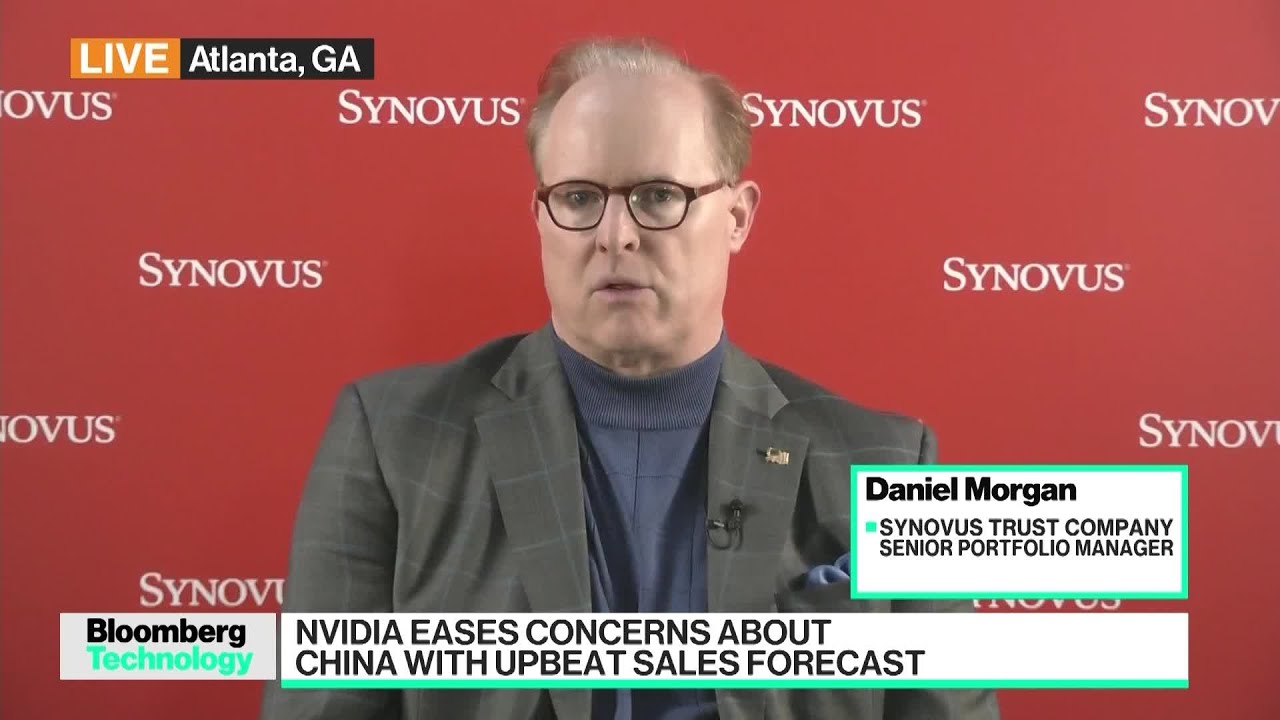The video highlights Nvidia’s strong financial performance and growth prospects driven by its data center, AI, and gaming sectors, with expectations of significant revenue from its upcoming Blackwell chip. Despite geopolitical and trade policy challenges, analysts remain optimistic about Nvidia and other leading tech stocks’ long-term potential, emphasizing their core strengths and innovation-driven growth.
The video discusses Nvidia’s recent financial performance, highlighting that the company has exceeded expectations beyond its data center business. Analysts have raised price targets across the board, with market sentiment suggesting the stock could rise at least 20% in the next year. Nvidia’s upcoming Blackwell chip and its strong presence in gaming, networking, and AI sectors are seen as key drivers of future growth, with revenues from the new chip expected to be substantial. The company’s recent quarter showed impressive results, particularly in data center revenue, which increased by 73%, and in AI, where Nvidia beat earnings by over $1 billion.
The conversation emphasizes Nvidia’s diversified business model, which extends beyond traditional gaming to include data center solutions and AI technology. The company is also expanding into new markets, such as working with sovereign governments like Saudi Arabia. Nvidia’s guidance for the upcoming fiscal quarter suggests that profit margins are expected to recover to the mid-70% range over the long term, indicating a healthy outlook. The strength in their data center segment and the Blackwell architecture underscores Nvidia’s leadership in high-performance computing and AI infrastructure.
The discussion then shifts to geopolitical and policy issues affecting Nvidia and other tech giants. Jensen Huang, Nvidia’s CEO, publicly expressed concerns about U.S. tariffs and policies impacting access to the Chinese market, which accounts for about 20% of Nvidia’s revenue. Huang highlighted the potential loss of revenue if China develops its own AI chips or if restrictions prevent Nvidia from selling in that market. The political landscape, especially U.S.-China relations, poses a significant risk to Nvidia’s growth prospects, as access to key markets could be limited by regulatory and trade barriers.
Further, the conversation broadens to the impact of tariffs and trade restrictions on the broader tech sector, including companies like Apple, Amazon, and Google. The potential legal challenges to tariffs and trade bans could influence the valuations and investability of these stocks. While some companies, like Apple, have shown resilience and managed to recover from recent lows, the overall environment remains uncertain. The uncertainty surrounding trade policies creates a “black cloud” over the sector, making it difficult for investors to confidently allocate capital.
Despite these challenges, the analysts maintain a positive long-term outlook for the “Mag Seven” tech stocks, emphasizing that the fundamental strengths of these companies remain intact. They believe that the current uncertainties are temporary and that the long-term growth prospects driven by innovation, AI, and digital transformation are still very promising. The key takeaway is that while short-term volatility and policy risks exist, the underlying fundamentals of these leading tech firms suggest a bright future for investors willing to navigate the current geopolitical landscape.
